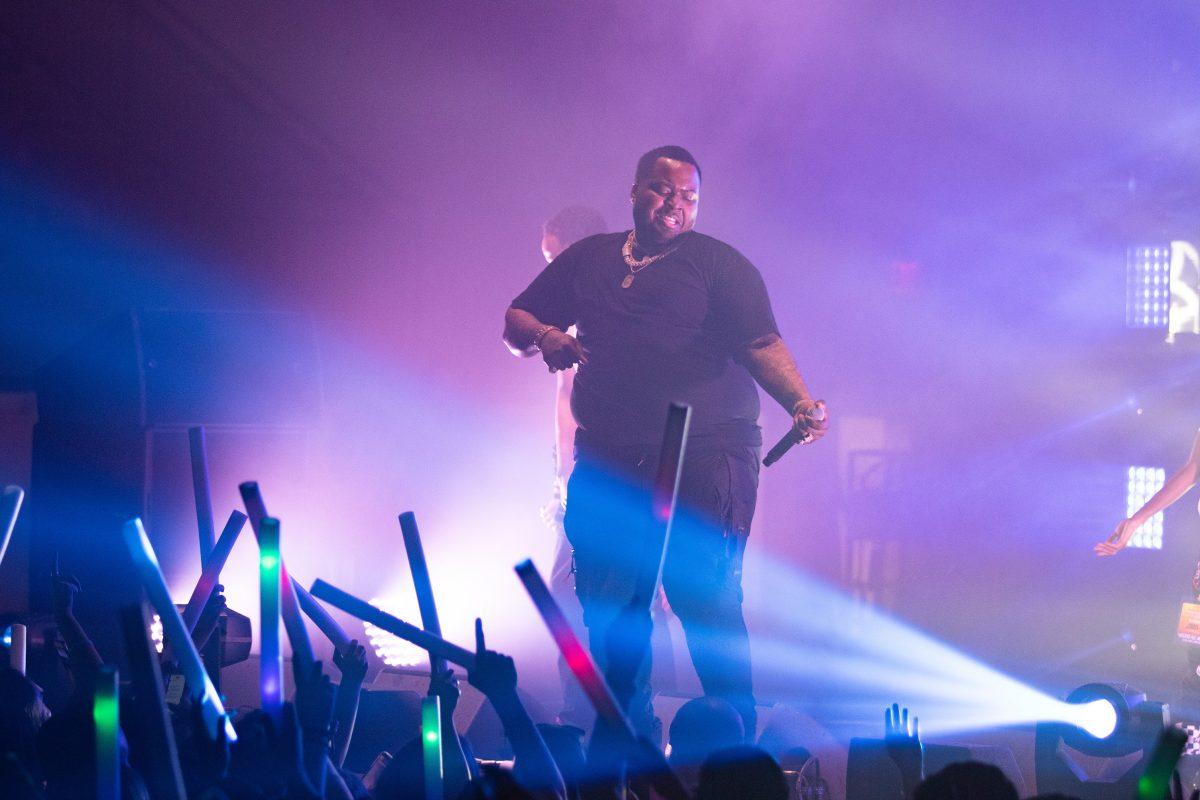The Spring Concert Committee learned of a 2012 allegation of sexual assault against Sean Kingston a few days before the April 10 concert. They decided not to cancel unless students showed concern.
Kingston’s performance was canceled at the University of Connecticut on April 11 after students voiced their concerns to the UConn Student Union Board of Governors (SUBOG). He is also being protested at Fordham University ahead of his performance there on April 27.
“If the students wanted it canceled [we would’ve canceled],” said Beth Hagovsky, Ed.D., director of Student Leadership and Activities. “Our office really tries to make sure our efforts are student driven. I want students to be the ones that raise awareness around issues and concerns and making sure that administration knows what their desires and expectations are at St. Joe’s.”
Morgan Gares ’19, co-chair of the St. Joe’s 2019 Spring Concert committee, said she and her co-chair Taylor Geiger ’21 were informed by Hagovsky days before the concert of the allegation against Kingston and the protest at Fordham, but they didn’t cancel because the university community did not speak out.
“If the campus did have negative thoughts, we would’ve shut [Kingston’s performance] down,” Gares said. “We want to make sure that our artists don’t misrepresent our university’s mission.”
According to entertainment website TMZ, a woman who met Kingston in 2010 in a Seattle hotel room after a meet and greet filed criminal charges against him, alleging that she was forced into having sex with Kingston, his bodyguard and a band member. Kingston responded saying the sex was consensual. Police eventually dropped charges against Kingston, who settled with the woman after she filed civil charges against him in 2012.
The Hawk reached out to Kingston’s public relation representative for a comment. The representative had not yet responded at time of publication.
News of the allegation against Kingston resurfaced in a 2017 article in The Spectator, Seattle University’s student newspaper, which ran a story about a student who brought the allegations to the attention of organizers of the university’s Quadstock Music Festival.
Seattle University’s 2017 Student Events and Activities Council (SEAC) Quadstock co-chairs released a statement that read: “It is the mission of SEAC to uphold the university’s values and provide excellent, creative, inclusive, educational and diverse programming to the student body. We decided that we could not meet these standards in light of the allegations against Kingston.”
Seattle University then cancelled Kingston’s appearance.
The UConn organizing committee cancelled Kingston’s appearance the day of his scheduled appearance at its UCONNIC music festival, according to UConn’s news- paper The Daily Campus.
The UConn Student Union Board of Governors (SUBOG) provided a statement to The Hawk: “SUBOG would like to acknowledge the students who voiced their opinions about this selection, and to assure them that the organization is sorry to have disappointed you. We pride ourselves on offering events ‘for students, by students,’ and are committed to learning from this experience as we move forward.”
Students at Fordham became aware of the allegation against Kingston through the Seattle University letter.
Emily Mueller, a sophomore at Fordham, and part of a newly created group, Students Against Sean, gave a speech on April 10 at the Student Life Council meeting, which features student life groups, University Student Government (USG) representatives and select university deans. The following day, Mueller gave a similar speech to the USG.
Mueller, along with four other sophomore women at Fordham, sent a letter to the Office for Student Involvement and Campus Activities Board stating they did not want Kingston performing at their Spring Weekend, taking place April 26-28.
“Indeed, as a fellow Jesuit university, Seattle University strives to uphold the very same values as Fordham,” the letter stated. “As Fordham students, we have been taught to uphold the values of equity, diversity, and social justice. Continuing to support Kingston stands at odds with these values.”
Katelynn Kwiat ’20 went to the Spring Concert at St. Joe’s and said she wasn’t sure if she would have gone if she knew about the allegation before.
“I think they should’ve [issued a statement],” Kwiat said. “I think they would’ve cleared the air, and I don’t think it would’ve hurt anything, other than ticket sales. I would’ve appreciated if they were straight up with us.”
According to Gares, St. Joe’s uses an agency called Concert Ideas that communicates with the artist and the university.
Megan Azzalina, assistant director of Student Leadership and Activities, said the vetting process for the headliner is “intense,” and involves conversation with Concert Ideas and a “ton of Google searches.”
“We even contact other schools who brought the performer to get feedback from them,” Azzalina said. “These are all things we will continue doing, but this is a really good example of how we can always improve.”
Gares said she apologizes on behalf of the Spring Concert committee for bringing Kingston to campus.
“If Taylor and I knew about this, we would’ve never put him on the survey, and if the school knew about it, because the school approves everybody, they would’ve never [approved him],” Gares said. “It’s good for the university because now we know that we have to do more research on future artists.”
Kingston is currently still set to perform for his college tour “Made in Jamaica” at State University of New York Oneonta, Ohio University, Bucknell University, Fordham University, Assumption College and Ursinus College.
















































